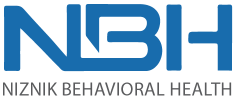Understanding Intensive Outpatient Treatment for Addiction
For people living with a substance abuse disorder, treatment is generally multi-faceted. While treatment often begins with time in a supervised detox to withdraw from substances, those addicted to drugs or alcohol will progress in treatment to the point of being able to return home. Intensive outpatient treatment is provided to people who have a safe, supportive home environment but want the structure of a residential treatment program during the day to work through the recovery process.
There are a large number of intensive outpatient treatment programs (IOPs) to treat addiction throughout the United States. Programs have increased because of the growing need for treatment that works and caters to the specific needs of those who are struggling with addiction. It is clear that addiction treatment takes time. For individuals who have made the decision to take their life back from drugs or alcohol, addiction treatment works best when it is a gradual process.
According to the National Institute on Drug Abuse, intensive outpatient treatment programs are best for individuals who have a strong support network or are trying to maintain a job while in recovery. The goal of IOPs is to address the emotional and behavioral pieces of addiction once the physical addiction has been managed through a medically managed detox. IOP is a continuation of the care received after completing an inpatient treatment program.
Treatment for addiction begins with a call for help. Supervised detox is the first step in the process, allowing the individual to safely remove substances from the body. While some people try to detox at home alone, this is not a safe practice. Withdrawal symptoms from drugs or alcohol can range in severity. Symptoms can become life-threatening if medical attention is not provided, and people who are home alone don’t have access to treatment.
Once the physical needs are addressed, it is time to work on the emotional and behavioral components of addiction. This is done through group therapy, short-term residential treatment, long-term residential treatment, individual therapy and intensive outpatient programs. The process of rehabilitation is guided by an individualized treatment plan, written by a counselor and the individual who is receiving treatment.
The IOP stage of addiction treatment is after detox and before fully integrating into the community. It is designed to teach those struggling with addiction about the importance of peer support, and to teach relapse prevention strategies that can be used effectively. For those who are in an IOP for substance abuse treatment, they will attend group therapy sessions and work closely with a counselor. In addition, and IOP provides the support necessary to reintegrate into society after going through the early stages of detox and recovery.

